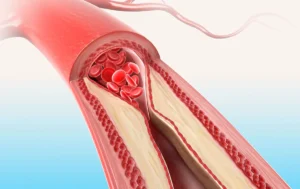Breakthrough in Heart Disease Treatment: 3D-Printed Blood Vessels
Artificial blood vessels may revolutionize heart disease treatment.Coronary artery disease and peripheral artery disease are among the most common forms of cardiovascular issues, often requiring surgical .intervention to improve patient health and alleviate pain. In some cases, doctors reroute blood flow around blocked arteries using grafts taken from veins or arteries in the body, a procedure known as “bypass surgery.” However, harvesting these grafts can lead to complications at the donor site.
Alternative Blood Vessels: New Hope with 3D Printing Technology
3D printing technology offers an innovative alternative to human blood vessels. Research has shown that strong, flexible tubes created with 3D printing technology, which closely mimic the properties of human veins, could significantly improve outcomes in heart bypass surgery. These vessels may reduce scarring, pain, and infection risks associated with harvesting human veins, while also enhancing the effectiveness of small synthetic grafts.
Next Steps: From Research to Application
In an advanced research study, a team led by the University of Edinburgh’s School of Engineering used a cutting-edge technique to print tubular grafts made from aqueous gel. These grafts were enhanced through a process known as electrospinning, which uses high voltage to extract extremely fine nanofibers and coat the artificial blood vessel with biodegradable polyester particles. Initial results show that these grafts are as strong as natural blood vessels and can be manufactured in diameters ranging from 1 to 40 mm, making them flexible and easy to integrate into the human body.
Looking Ahead: Animal Testing and Human Trials
The next phase of the study, published in the journal “Advanced Materials Techniques” in collaboration with Heriot-Watt University, will focus on using these blood vessels in animal models, followed by clinical trials in humans in collaboration with the Roslin Institute at the University of Edinburgh. According to Dr. Faraz Fadl, the lead researcher, “Our hybrid technology opens up exciting new possibilities for producing tubular structures in tissue engineering.”
Get ready for a revolution in heart disease treatment with artificial blood vessels!
To read the latest articles please visit the home page of Turk Blogs.





